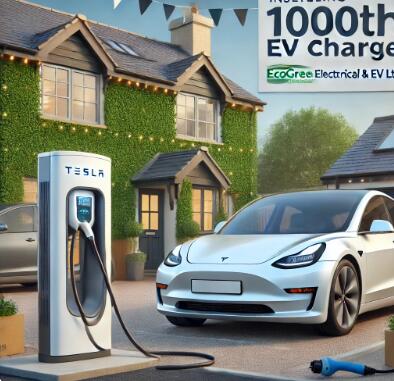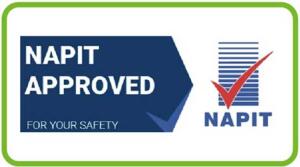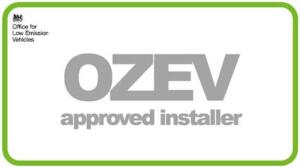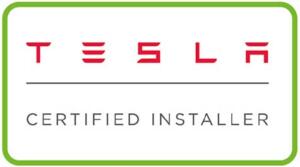Introduction
As the UK continues its journey towards a greener future, the Office for Zero Emission Vehicles (OZEV) offers various grants to support the adoption of electric vehicles (EVs). These grants aim to reduce the upfront costs associated with installing EV chargers at homes and workplaces. This guide provides an overview of the current OZEV grant rules, eligibility criteria, and the application process.
Current OZEV Grant Schemes
1. Electric Vehicle Homecharge Scheme (EVHS)
The EVHS provides financial support for the installation of electric vehicle charge points at residential properties. Homeowners and tenants who own or lease an eligible electric vehicle can apply for this grant.
2. Workplace Charging Scheme (WCS)
The WCS is designed to support businesses, charities, and public sector organisations in installing EV charge points at their premises. This scheme helps to encourage the use of electric vehicles among employees and fleet drivers.
3. On-Street Residential Chargepoint Scheme (ORCS)
The ORCS aims to increase the availability of on-street charging points in residential areas without off-street parking. Local authorities can apply for funding to install charge points in such areas.
Eligibility Criteria
Electric Vehicle Homecharge Scheme (EVHS)
- Vehicle Eligibility: The applicant must own, lease, or have ordered an eligible electric vehicle. A list of eligible vehicles can be found on the OZEV website.
- Property Requirements: The property must have private off-street parking.
- Homeowner Types:
- Own and live in a house or bungalow
- Own and live in a flat
- Rent a house or flat (with landlord’s permission)
- Landlords can also apply for grants to install charge points at their rental properties.
- Previous Grants: Applicants who have already claimed the grant for their property cannot apply again.
Workplace Charging Scheme (WCS)
- Organisation Type: Businesses, charities, and public sector organisations are eligible.
- Location: The site must have dedicated off-street parking for staff or fleet use.
- Number of Charge Points: Applicants can apply for up to 40 charge points across multiple sites.
On-Street Residential Chargepoint Scheme (ORCS)
- Local Authorities: Only local authorities can apply.
- Location Requirements: The funding is for on-street locations in residential areas without off-street parking.
Application Process
Electric Vehicle Homecharge Scheme (EVHS)
- Check Eligibility: Ensure your vehicle and property meet the criteria.
- Choose an Installer: Select an OZEV-approved installer to carry out the work.
- Application Submission: The installer will submit the application on your behalf.
- Installation and Reimbursement: Once approved, the installation will proceed, and the grant will cover up to 75% of the cost, capped at £350.
Workplace Charging Scheme (WCS)
- Eligibility Check: Confirm your organisation meets the criteria.
- Online Application: Complete the online application form on the OZEV website.
- Voucher Issuance: If approved, you will receive a voucher code to pass to your chosen installer.
- Installation: The installer will complete the work, and you can claim the grant, which covers up to £350 per socket, up to 40 sockets.
On-Street Residential Chargepoint Scheme (ORCS)
- Local Authority Application: Local authorities should submit their applications through the dedicated OZEV portal.
- Project Planning: Plan the installation of charge points in eligible areas.
- Funding Allocation: If approved, the grant will cover up to 75% of the project cost.
Grant Amounts and Coverage
- EVHS: Up to £350 per charge point, covering 75% of the installation cost.
- WCS: Up to £350 per socket, with a maximum of 40 sockets per applicant.
- ORCS: Up to 75% of the cost for on-street charge points, with varying caps based on project specifics.
Recent Changes or Updates
As of 2024, there have been a few updates to the OZEV grants:
- EVHS: The focus has shifted towards promoting the installation of smart chargers to enhance energy management.
- WCS: Increased funding allocation for organisations adopting larger fleets of electric vehicles.
- ORCS: Additional funding to support more comprehensive coverage in densely populated residential areas.
Benefits of the OZEV Grants
For Individuals
- Cost Savings: Reduce the upfront cost of installing a home EV charger.
- Convenience: Enable convenient and reliable home charging for EV owners.
- Environmental Impact: Support the reduction of carbon emissions by facilitating the switch to electric vehicles.
For Businesses
- Employee Satisfaction: Provide charging facilities for employees, promoting EV adoption.
- Operational Efficiency: Reduce fuel costs and improve the efficiency of business fleets.
- Sustainability Goals: Enhance corporate social responsibility by contributing to environmental sustainability.
For Local Authorities
- Community Support: Increase the availability of charging infrastructure for residents.
- Public Health: Improve air quality by encouraging the use of zero-emission vehicles.
- Infrastructure Development: Enhance local infrastructure to meet the growing demand for EV charging.
Conclusion
The OZEV grants offer valuable support for individuals, businesses, and local authorities looking to embrace electric vehicles. By understanding the eligibility criteria, application processes, and benefits, you can take full advantage of these schemes to contribute to a greener future. For more information or to start your application, visit the OZEV website.
Frequently Asked Questions
1. Can tenants apply for the EVHS grant without the landlord's permission?
No, tenants cannot apply for the EVHS grant without the landlord’s permission. The EVHS grant requires that the property owner or landlord consents to the installation of the EV charge point. Tenants must provide written permission from their landlord as part of the application process. This ensures that all parties are aware of and agree to the modifications being made to the property.
What are the benefits of installing a smart charger under the EVHS grant?
Smart chargers offer several benefits over standard chargers, including enhanced energy management and cost savings. These chargers can optimize charging times to take advantage of lower electricity rates during off-peak hours, reducing overall energy costs. Additionally, smart chargers can be integrated with home energy management systems and renewable energy sources, such as solar panels, to further enhance energy efficiency and sustainability. Installing a smart charger also future-proofs your home as smart technology becomes more prevalent in EV charging infrastructure.
Are there any additional costs associated with installing EV charge points that the OZEV grant does not cover?
Yes, there may be additional costs associated with installing EV charge points that the OZEV grant does not cover. These costs can include:
- Upgrades to the electrical system: If your existing electrical system is not capable of supporting the new charge point, upgrades may be required, which can be an additional expense.
- Trenching or cabling: For installations that require extensive cabling or trenching to connect the charge point to the power supply, there may be additional labour and material costs.
- Permits and inspections: Depending on your local regulations, you may need to obtain permits or undergo inspections, which can incur fees.
- Maintenance: Regular maintenance and any necessary repairs to the charge point will also be additional costs not covered by the grant.
By understanding these potential additional expenses, applicants can better prepare for the financial commitment involved in installing EV charge points.











